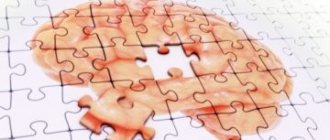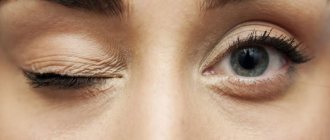Weakness
is a subjective feeling of lack of energy in everyday situations. Complaints of weakness usually arise when actions that were previously familiar and natural suddenly begin to require special effort.
Weakness is often accompanied by symptoms such as dizziness, confusion, drowsiness, headaches or muscle pain.
Fatigue at the end of a working day or after performing a long or complex job cannot be considered a weakness, since such fatigue is natural for the body. Normal fatigue goes away after rest; healthy sleep and well-spent weekends help a lot. But if sleep does not bring cheerfulness, and a person, having just woken up, already feels tired, then there is a reason to consult a doctor.
Causes of weakness
Weakness can be caused by a number of reasons, including:
- avitaminosis. Weakness is often caused by a lack of vitamin B12, which is essential for making red blood cells (RBCs) and preventing anemia, and is also important for cell growth. Vitamin B12 deficiency leads to the development of anemia, which is considered the most common cause of general weakness. Another vitamin whose deficiency leads to weakness is vitamin D. This vitamin is produced by the body when exposed to sunlight. Therefore, in autumn and winter, when daylight hours are short and the sun does not appear often, a lack of vitamin D may be the cause of weakness;
- depression;
- thyroid diseases. Weakness can occur with both increased thyroid function (hyperthyroidism) and decreased function (hypothyroidism). With hypothyroidism, as a rule, there is weakness in the arms and legs, which is described by patients as “everything falls out of hand”, “legs give way”. With hyperthyroidism, general weakness is observed against the background of other characteristic symptoms (nervous excitability, hand tremors, elevated temperature, rapid heartbeat, weight loss while maintaining appetite);
- vegetative-vascular dystonia;
- chronic fatigue syndrome, indicating extreme depletion of vitality;
- Celiac enteropathy (celiac disease) is the inability of the intestines to digest gluten. If at the same time a person consumes products made from flour - bread, pastries, pasta, pizza, etc. – manifestations of indigestion develop (flatulence, diarrhea), accompanied by constant fatigue;
- diabetes;
- diseases of the cardiovascular system;
- oncological diseases. In this case, weakness is usually accompanied by low-grade fever;
- lack of fluid in the body. Weakness often comes in the summer during hot weather, when the body loses a lot of water, and it is not possible to restore the water balance in time;
- some medications (antihistamines, antidepressants, beta blockers).
An attack of weakness can also occur in the following cases:
- trauma (with large blood loss);
- brain injury (in combination with neurological symptoms);
- menses;
- intoxication (including infectious diseases such as influenza).
Diagnosis of diseases of the nervous system
Diagnosis of diseases of the nervous system involves a neurological examination of the patient, during which his consciousness, orientation in space, intelligence, sensitivity, reflexes, etc. are analyzed. Sometimes a neurological disease can be identified based on clinical indicators, but most often it is necessary to resort to various medical studies:
and MRI (magnetic resonance imaging) can identify neoplasms, hemorrhage and other foci of disease in the patient’s body.
and ultrasound examination allow to identify vascular disorders in the human body
, radiography and electroencephalography allow diagnosing diseases of the nervous system
and
blood tests
.
Make an appointment with a neurologist
Make an appointment
Weakness and dizziness
Dizziness quite often occurs against a background of general weakness. A combination of these symptoms may occur in the following cases:
- anemia;
- cerebrovascular accidents;
- a sharp increase or decrease in blood pressure;
- oncological diseases;
- stress;
- in women - during menstruation or menopause.
Kinds
This classification distinguishes the following neurotic level disorders:
- Anxiety-phobic disorders. The main symptom of the disease is a sharp increase in the level of anxiety, sometimes turning into a phobia. The group of such disorders includes generalized anxiety disorder, panic attacks, agoraphobia, claustrophobia, social phobia and other simple and complex phobias.
- Obsessive-compulsive disorders. The leading symptom is obsessive thoughts and compulsive actions.
- Asthenic neurosis (neurasthenia) is a disorder of a neurotic level, in the clinical picture of which asthenic syndrome predominates.
- Somatoform disorders. In terms of clinical manifestations, such disorders resemble somatic diseases, but have no real physical basis. Unlike patients with factitious disorders, patients with somatoform disorders do not take any action to feign illness and actually feel unpleasant symptoms.
- Dissociative disorders. This group includes dissociative disorders of movements and sensations and other similar disorders of a neurotic level, previously called hysterical neurosis.
Weakness and drowsiness
Patients often complain that they want to sleep, but do not have enough strength for normal life activities. The combination of weakness and drowsiness is possible for the following reasons:
- lack of oxygen. The urban atmosphere is poor in oxygen. Constant stay in the city contributes to the development of weakness and drowsiness;
- decrease in atmospheric pressure and magnetic storms. People who are sensitive to weather changes are called weather dependent. If you are weather dependent, bad weather may cause your weakness and drowsiness;
- avitaminosis;
- poor or unhealthy diet;
- hormonal disorders;
- alcohol abuse;
- chronic fatigue syndrome;
- vegetative-vascular dystonia;
- other diseases (including infectious ones - in the early stages, when other symptoms have not yet appeared).
What does a neurologist treat?
The list of diseases of the nervous system is quite wide and varied. Most often, these diseases are based on the following reasons:
The most common reason for visiting a neurologist is headaches.
, and in particular,
migraine
. This disease is characterized by severe pain in the temporal lobe of the head. You can also consult a neurologist with the following diseases or symptoms:
Unfortunately, this is not the entire list of diseases and symptoms, but only common ailments for which people consult a neurologist.
Weakness: what to do?
If weakness is not accompanied by any disturbing symptoms, you can improve your well-being by following these recommendations:
- provide yourself with a normal amount of sleep (6-8 hours a day);
- keep a daily routine (go to bed and get up at the same time);
- try not to be nervous, relieve yourself of stress;
- exercise, provide yourself with optimal physical activity;
- spend more time in the fresh air;
- optimize your nutrition. It should be regular and balanced. Avoid fatty foods. If you are overweight, try to get rid of it;
- make sure to drink enough water (at least 2 liters per day);
- quit smoking and limit your alcohol consumption.
Causes
- Psychotraumatic situations
- Somatic and neurological diseases that cause physical discomfort and are accompanied by pain.
- Mental illnesses, especially those accompanied by depressive states.
- Abuse of psychoactive substances (alcohol, caffeine, nicotine, psychostimulants, narcotic substances), medications (dietary supplements, decongestants and antitussives, glucocorticoids, theophylline, phenytoin).
- Malicious smoking.
- Obstructive sleep apnea syndrome (snoring).
- Disturbance in the rhythm of sleep and wakefulness (rapid change of time zones, night shift work, damage to the hypothalamus due to injury or encephalitis).
When should you see a doctor if you feel weak?
If weakness does not go away within a few days or, moreover, lasts more than two weeks, you should definitely consult a doctor.
You should not hesitate to consult a doctor if weakness is accompanied by symptoms such as:
- dyspnea;
- cough;
- fever, chills, increased temperature;
- stomach upset;
- sudden weight loss;
- mood changes, apathy, depression.
Where to go if you have a nervous disorder?
Treatment of nervous disorders requires the help of a specialist: psychologist, neurologist, neurologist, psychotherapist or psychiatrist. Therapy should be comprehensive, including drug and non-drug methods. It is necessary to treat first of all the cause of the nervous disorder, only in this case the therapy will be successful. In any clinical picture, the patient is shown calm.
Which doctor should I contact about weakness?
If weakness is the main complaint, then it is best to consult a general practitioner (general practitioner or family doctor).
If you have stomach problems due to weakness, you can consult a gastroenterologist.
If weakness is accompanied by pain or discomfort in the heart area, you should consult a cardiologist.
Be prepared for the fact that you may be referred for consultation to doctors of such specialties as a hematologist, oncologist, neurologist, endocrinologist, or psychotherapist.
Depression
Atherosclerosis
Thyrotoxicosis
Rheumatism
Arthritis
Gastritis
16462 January 30
IMPORTANT!
The information in this section cannot be used for self-diagnosis and self-treatment.
In case of pain or other exacerbation of the disease, diagnostic tests should be prescribed only by the attending physician. To make a diagnosis and properly prescribe treatment, you should contact your doctor. Depression is one of the most common mental disorders.
The criteria for a depressive episode are a daily decrease in mood that occupies most of the day, significantly different from the person’s usual state, for two weeks or more, an obvious decrease in interest and pleasure in activities usually associated with positive emotions, increased fatigue and motor retardation.
To the above symptoms you can add the following:
- decreased attention;
- loss of appetite;
- insomnia;
- decreased self-esteem;
- thoughts about one's own guilt;
- suicidal thoughts.
Types of depression
- Psychogenic depression develops as a reaction to traumatic events.
- Endogenous depression is caused by changes in the levels of hormones and neurotransmitters.
- Exogenous depression occurs with various somatic diseases, as a result of brain damage and with the use of psychoactive substances.
- Hidden (“masked”) depression manifests itself in the form of a somatic illness.
Causes of depression
The greatest difficulty is in diagnosing hidden, otherwise latent, depression.
When diagnosing it, it is important to exclude the presence of any organic diseases. After all, such depression has many manifestations, with which patients turn to general practitioners, cardiologists, neurologists, etc. However, examinations do not reveal any organic pathologies.
The most common form of such depression is cardiac. Patients feel excruciating pain in the heart area, palpitations, weakness, dizziness, but when undergoing a cardiac examination, no abnormalities are detected.
The abdominal variant is also common, in which pain occurs in any part of the abdomen, nausea, and loss of appetite.
The skin variant is characterized by redness and changes in skin sensitivity, the appearance of eczematous rashes, increased sweating, itching, often local (for example, itching of only the palms or legs).
The causes of the development of exogenous depression can be traumatic brain injuries, neuroinfections, tumor and vascular diseases of the brain (atherosclerosis, strokes and cerebral infarctions), and atrophic processes.
Psychogenic depression occurs after exposure to psychological trauma, which is an individually significant stressful event.
Endogenous depression occurs as an independent disease, and can also accompany bipolar disorder, which is characterized by alternating phases of mania, depression and mental stability.
There are frequent cases of depressive disorders in people who use psychoactive substances and alcohol.
Somatic diseases that can lead to depression are divided into groups.
- Cardiac pathologies: myocardial infarction, arterial hypertension, chronic heart failure, arrhythmias.
- Endocrine disorders: diabetes mellitus, hypo- and hyperthyroidism.
- Gastrointestinal disorders: liver cirrhosis, colitis, etc., leading to impaired absorption and detoxification of harmful substances.
- Rheumatic diseases: rheumatism, systemic connective tissue lesions, arthritis, etc. are accompanied by severe pain and require long-term treatment.
- Neoplasms, especially malignant ones.
Postpartum depression is worth considering separately.
The development of this condition is facilitated by features of the postpartum period: hormonal changes in the body occur (the concentration of female sex hormones decreases), and the volume of circulating blood decreases.
Deterioration in health after childbirth, problems with breastfeeding, and changes in appearance have a significant impact. Depression develops in 10% of primiparous women from the 2nd to the 6th month after birth and is manifested by symptoms characteristic of all depression: motor retardation, worsening mood, tearfulness, changes in appetite. A feature of postnatal depression is a decrease in a woman’s interest in the child, irritation from the need to care for him. It is very important to diagnose this condition in a timely manner and undergo a course of treatment, since it is the child who suffers first.
Which doctors should I consult if I have depression?
In most cases, with depression, they seek help from a doctor, , , , depending on the cause of the complaints. Many patients avoid seeking help from a psychiatrist or psychologist. However, specialists in the field of psychiatry and psychology not only diagnose the causes of depression, but also help to cope with the depressive state.
Diagnosis of depression
A doctor of any specialty can suspect depression. However, diagnosis of depression is possible only by a psychiatrist who will conduct a survey and analyze the data obtained. To exclude organic pathology in masked and exogenous depression, depending on the symptoms, the doctor may prescribe a set of laboratory and instrumental examinations:
- clinical blood test;











